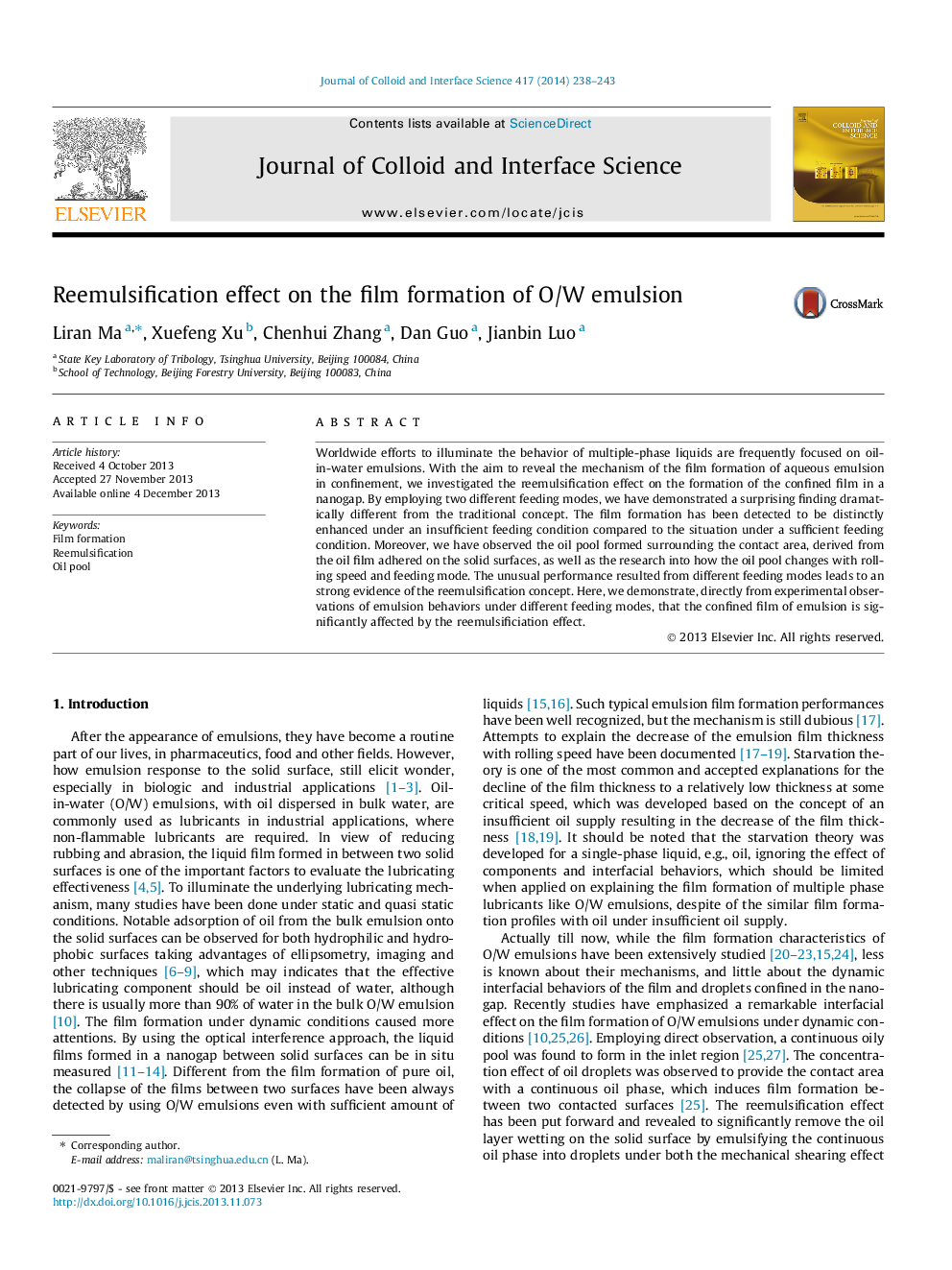| Article ID | Journal | Published Year | Pages | File Type |
|---|---|---|---|---|
| 607580 | Journal of Colloid and Interface Science | 2014 | 6 Pages |
•We demonstrate enhanced film formation ability of emulsion under insufficient feeding condition.•Oil pool is decreased with rolling speed.•The film thickness starts to decline when the oil pool disappears.•We report a direct observation of the reemulsification effect on the adhered oil film.
Worldwide efforts to illuminate the behavior of multiple-phase liquids are frequently focused on oil-in-water emulsions. With the aim to reveal the mechanism of the film formation of aqueous emulsion in confinement, we investigated the reemulsification effect on the formation of the confined film in a nanogap. By employing two different feeding modes, we have demonstrated a surprising finding dramatically different from the traditional concept. The film formation has been detected to be distinctly enhanced under an insufficient feeding condition compared to the situation under a sufficient feeding condition. Moreover, we have observed the oil pool formed surrounding the contact area, derived from the oil film adhered on the solid surfaces, as well as the research into how the oil pool changes with rolling speed and feeding mode. The unusual performance resulted from different feeding modes leads to an strong evidence of the reemulsification concept. Here, we demonstrate, directly from experimental observations of emulsion behaviors under different feeding modes, that the confined film of emulsion is significantly affected by the reemulsificiation effect.
Graphical abstractFigure optionsDownload full-size imageDownload high-quality image (81 K)Download as PowerPoint slide
